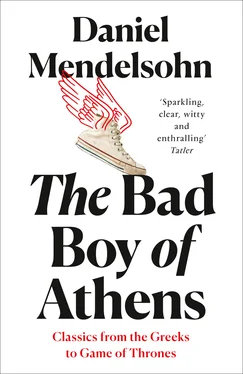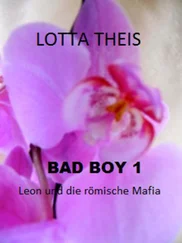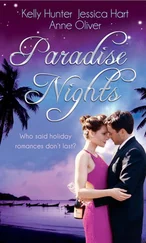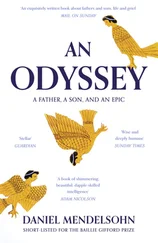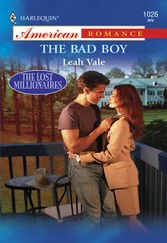1 ...7 8 9 11 12 13 ...19 seized even him with an immortal wife.
Here as elsewhere in the new translation, Diane J. Rayor captures the distinctively plainspoken quality of Sappho’s Greek, which, for all the poet’s naked emotionality and love of luxe, is never overwrought or baroque. Every translation is a series of sacrifices; in Rayor’s case, emphasis on plainness of expression sometimes comes at the cost of certain formal elements – not least, metre. The late classicist M. L. West, who published a translation in the Times Literary Supplement , took pains to emulate the long line of Sappho’s original:
But me – my skin which once was soft is withered now
by age, my hair has turned to white which once was black …
Still, given how disastrously cloying many attempts to recreate Sappho’s verse as ‘song’ have proved to be, you’re grateful for Rayor’s directness. Her notes on the translations are particularly useful, especially when she alerts readers to choices that are left ‘silent’ in other English versions. The last extant line of Fragment 31, for instance, presents a notorious problem: it could mean something like ‘all must be endured’ or, on the other hand, ‘all must be dared’. Rayor prefers ‘endured’, and tells you why she thinks it’s the better reading.
Rayor makes one very interesting choice in translating the ‘Old Age Poem’. The Cologne manuscript dates to the third century BC, which makes it the oldest and therefore presumably the most reliable manuscript of Sappho that we currently possess. In that text, the poem ends after the sixth couplet, with its glum reference to Tithonus being seized by grey old age. But Rayor has decided to include some additional lines that appear only in the fragmentary Oxyrhynchus papyrus. These give the poem a far more upbeat ending:
Yet I love the finer things … this and passion
for the light of life have granted me brilliance and beauty.
The manuscript containing those lines was copied out five hundred years after the newly discovered Cologne version – half a millennium further away from the moment when the Poetess first sang this song.
And so the new Sappho raises as many questions as it answers. Did different versions of a single poem coexist in antiquity, and, if so, did ancient audiences know or care? Who in the ‘Brothers Poem’ has been chattering on about Sappho’s brother Charaxus, and why? Where, exactly, does the ‘Old Age Poem’ end? Was it a melancholy testament to the mortifying effects of age or a triumphant assertion of the power of beauty, of the ‘finer things’ – of poetry itself – to redeem the ravages of time? Even as we strain to hear this remarkable woman’s sweet speech, the thrumming in our ears grows louder.
– The New Yorker , 16 March 2015
By now, we have all heard the story. Like so many tragedies, this one begins with a husband and his wife. The husband seems a happy man, pre-eminent among his contemporaries, affable, well liked, someone whose weaknesses are balanced by a remarkable gift for inspiring affection and loyalty. (His relatives, on the other hand, are thought to be cold and greedy.) The wife, whose fiery inner passions are belied by a conventional exterior – she exults in the small routines of domestic life – is intensely, some might say madly, devoted to him. They have two small children: a boy, a girl.
Then something goes wrong. Some who have studied this couple say that it is the husband who grotesquely betrays the wife; others, who consider the wife too intense, too disagreeably self-involved, dispute the extent of the husband’s culpability. (As often happens with literary marriages, each has fanatical partisans and just as fanatical detractors – most of whom, it must be said, are literary critics.) What we do know is that directly as a result of her husband’s actions, the wife willingly goes to her death – but not before taking great pains to guarantee the safety of her two children. Most interesting and poignant of all, the knowledge of her impending death inspires the wife to previously unparalleled displays of eloquence: as her final hours approach, she articulates, with thrilling lyricism, what she knows about life, womanhood, marriage, death – and seems, as she does so, to speak for all women. It is only after her death, many feel, that her husband realizes the extent of his loss. She comes back, in a way, to haunt him: a speaking subject no longer, but rather the eerily silent object of her husband’s solicitous, perhaps compensatory, ministrations.
This is the plot of Euripides’ Alcestis . That it also resembles, uncannily in some respects, the plot of the life of Ted Hughes – whose final, posthumously published work is an adaptation of Euripides’ play, may or may not be a coincidence. Because Hughes’s Alcestis is a liberal adaptation, it cannot, in the end, illuminate this most controversial work of the most controversial of the Greek dramatists. (Scholars still can’t decide whether it’s supposed to be farce or tragedy.) But the choices Hughes makes as a translator and adapter – what he leaves out, what he adds, what he smooths over – do shed unexpected light on his career, and his life.
As Ted Hughes neared the end of his life, he devoted himself to translating a number of classical texts: a good chunk of Ovid’s Metamorphoses in 1997, Racine’s Phèdre in 1998 (performed by the Almeida Theatre Company at the Brooklyn Academy of Music in January 1999), and Aeschylus’s Oresteia , commissioned by the Royal National Theatre for a performance in 1999 and published posthumously in that year. Hughes had translated one other classical text: Seneca’s Oedipus , for a 1968 production by the Old Vic starring John Gielgud and Irene Worth. But with the exception of that work, the fit between the translator and the texts was never a comfortable one.
Hughes made his name as a poet of nature, and excluding the translations (he also translated Wedekind’s Spring Awakening and Lorca’s Blood Wedding ) and the self-revealing 1997 Birthday Letters , addressed to his late wife, the poet Sylvia Plath, he rarely strayed from the natural world, for which he had extraordinary imaginative sympathy (and which in turn inspired his fascination with Earth-Mother folklore and animistic magic). A glance at his published work reveals the following titles: The Hawk in the Rain , Crow: From the Life and Songs of the Crow , Flowers and Insects , Wolfwatching , Rain-Charm for the Duchy , Cave Birds , The River . ‘They are a way of connecting all my deepest feelings together,’ Hughes told an interviewer who’d asked why he spoke so often through animals. Yet the poet’s appreciation for – and artistic use of – the life of birds, fish, insect predators, of barnyards and wild landscapes, was anything but sentimental. As Helen Vendler observed in a review of the 1984 collection The River , Hughes, who liked to represent himself ‘as a man who has seen into the bottomless pit of aggression, death, murder, holocaust, catastrophe’, had taken as his real subject ‘the moral squalor attending the brute survival instinct’. In Hughes’s best poetry, the natural world, with its dazzling beauties and casual cruelties, served as an ideal vehicle for investigating that dark theme.
It was a theme for which his tastes in language and diction particularly well suited him. Especially at the beginning of his career, the verse in which Hughes expressed himself was tough, vivid, sinewy, full (as Vendler wrote about The River ) of ‘violent phrases, thick sounds, explosive words’, the better to convey a vision of life according to which an ordinary country bird, say, can bristle with murderous potential. ‘Terrifying are the attent sleek thrushes on the lawn / More coiled steel than living – a poised / Dark deadly eye …’, goes the violent beginning of ‘Thrushes’, from the 1960 collection Lupercal , hissing suggestively with alliterative s ’s, exploding with menacing t ’s and d ’s, thick with cackling c ’s and k ’s. It was, indeed, Hughes’s ‘virile, deep banging’ poems that first entranced the young Plath; she wrote home to her mother about them. (At the end of his career a certain slackness and talkiness tended to replace virile lyric intensity; few of the Birthday Letters poems, for instance, achieve more than a documentary interest. Hughes himself seemed to be aware of this. ‘I keep writing this and that, but it seems pitifully little for the time I spend pursuing it,’ he wrote to his friend Lucas Myers in 1984. ‘I wonder sometimes if things might have gone differently without the events of ’63 and ’69 [Plath’s suicide in 1963 and, in 1969, the suicide of Hughes’s companion Assia Wevill, who also killed the couple’s daughter]. I have an idea of these two episodes as giant steel doors shutting down over great parts of myself … No doubt a more resolute artist would have penetrated the steel doors.’)
Читать дальше
